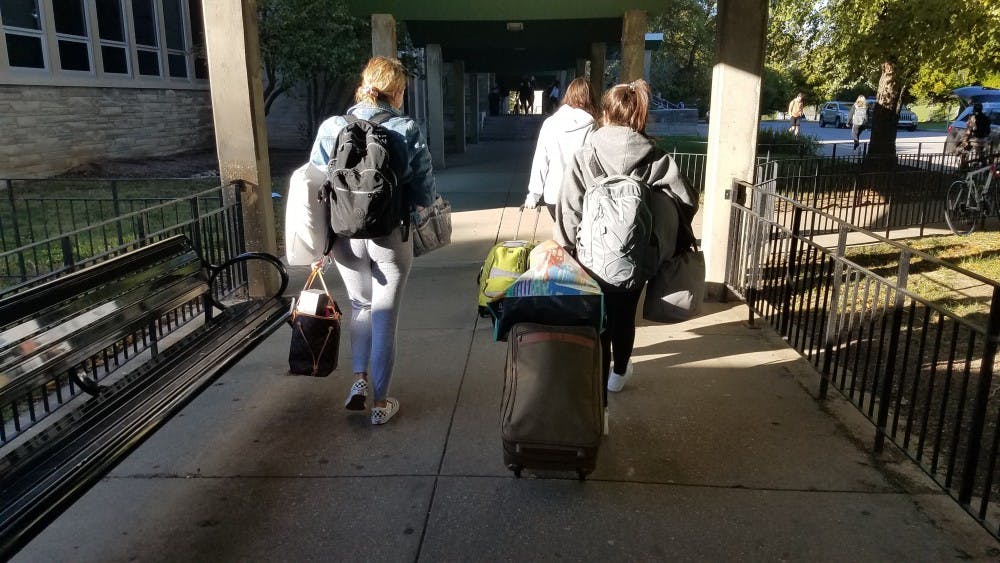INDIANAPOLIS - A federal judge granted a temporary restraining order on destruction of evidence Wednesday in the lawsuit against the Trustees of IU regarding residence hall mold problems.
The temporary restraining order will require the University to document mold through photographs or videos before removing the mold through remediation processes.
The court also stated that the University and the plaintiffs, students from Foster and McNutt Quads, are to communicate on how the plaintiff’s “supplied expert” can take samples of the mold before remediation takes place. This was in response to the plaintiff’s claim that they had proposed to pay for a third-party expert to take tape lifts and photographs of the mold before remediation and the University had not accepted their proposals.
“Mold is evidence and it is being destroyed when rooms are remediated,” said Jon Noyes, one of two attorneys representing the plaintiffs, in the hearing Monday. “We can’t test mold if it’s already cleaned up so we can’t know what type of mold students are being exposed to.”
The party who initiated legal action includes seven named students, and because of its potential class-action nature, an undetermined number of other students are also involved.
Although students are the official plaintiffs, parents have been a driving force in mold complaints.
The Monday hearing was to determine if the plaintiff’s request for a temporary restraining order and preliminary injunction would be necessary. The plaintiff requested the restraining order to stop the University from making misleading or inaccurate statements to students and to stop it from destroying evidence of mold before preserving evidence of it.
The first request, which would have limited the University’s communications with students and parents because of plaintiff’s claim of IU producing misleading or inaccurate statements, was denied. The court said there was not enough evidence to imply the University has been misleading students, lying to them or coercing them.
During the hearing, attorneys representing the students and parents argued that IU has only been using air samples of mold spores to determine if students can safely move back into rooms or remain in rooms. Attorneys representing IU were able to prove this statement wrong.
According to the court documents, the University has consistently and repeatedly said that air sample scores are not the only indicator used to determine if rooms are safe to inhabit and that scores do not imply that the room is free from mold. The court said the University’s website has also provided accurate, appropriate information to update students and parents throughout the remediation process.
“We’ve attempted to address all the questions that students might have,” said Tom Barnard, one of the attorneys representing IU, in the Monday hearing.
The court’s decision to grant the temporary restraining order on the destruction of evidence was made on the basis that obtaining evidence of mold is essential to the lawsuit as it will give the plaintiff a fair opportunity to examine the truth of their claims and prove the claims in further hearings.
The temporary restraining order will remain in effect until Dec. 5 or until a ruling on the plaintiff’s request for a preliminary injunction. The date for a hearing on the preliminary injunction, which will result in a more permanent ruling on the the plaintiff’s claims in the temporary restraining order request, has not yet been set.
Correction: A previous version of this article incorrectly stated the nature of the lawsuit in question. A class had not been defined at the time of publication and is not yet a class action lawsuit. The IDS regrets this error.




